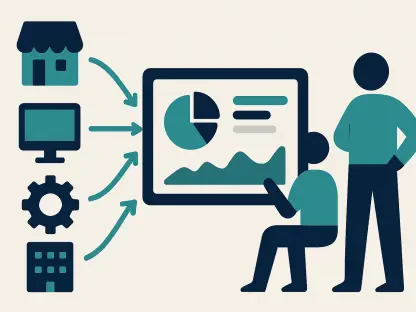The landscape of global trade regulations is in constant flux, characterized by shifts that compel businesses to stay vigilant and responsive. This ongoing evolution requires companies engaged in international commerce to reassess their export compliance frameworks, ensuring alignment with newer and stricter regulatory demands. Export compliance is no longer an optional safeguard but a critical component that influences global supply chains and operational strategies across industries. This article explores the trend of evolving export compliance frameworks, examining current developments, expert insights, and potential future implications.
Current Trends in Compliance Frameworks
Growth in Regulation Measures
Recent data underscores the rapid expansion and adoption of stringent export compliance frameworks. Statistics reveal heightened attention to regulatory adherence, fueled by an ever-increasing focus on security and technology control in international trade. Authoritative studies and reports affirm the shift toward more comprehensive regulatory measures, highlighting the importance of updated compliance systems. As global trade regulations continue to evolve, companies must prioritize staying informed and agile, adapting their frameworks for maximum compliance efficacy. This proactive approach is paramount to safeguarding operations against unforeseen penalties and trade disruptions.
Real-World Implementation
Several industries offer tangible examples of businesses effectively adapting to these evolving requirements. Companies are leveraging advanced compliance frameworks, integrating sophisticated monitoring tools and risk assessments to better align their operations with current trade regulations. Notable case studies illustrate how businesses in the technology and manufacturing sectors are innovating their compliance strategies to address new regulatory challenges. These efforts have proven essential in ensuring that sensitive technologies remain secure and operations continue seamlessly despite regulatory shifts.
Expert Insights on Compliance Evolution
Prominent industry experts provide valuable perspectives on the changing landscape of export compliance. Thought leaders emphasize the increasing importance of robust compliance frameworks as enterprises face novel regulatory challenges. The emphasis on heightened vigilance in export controls reflects the growing complexity of global commerce. Experts highlight the critical role of effective compliance measures in international trade practices, urging businesses to invest in comprehensive frameworks that are adaptable to regulatory changes. This focus on proactive governance is pivotal in managing risks and supporting sustainable growth.
Future Outlook and Regulatory Implications
The future of export compliance frameworks promises further complexity as global trade continues to evolve. Anticipated shifts in regulations may bring both opportunities and challenges for businesses across various industries. Enhanced compliance measures present potential benefits such as improved security protocols and a more thorough understanding of trade vulnerabilities. However, these advancements also pose risks, including increased regulatory burdens and operational hurdles that require careful navigation. Companies must remain alert and responsive, continuously innovating their compliance strategies to maintain competitive advantages in the face of regulatory change.
Navigating the Compliance Journey
Reflecting on the insights shared throughout this exploration, it becomes clear that maintaining effective export compliance frameworks is critical. In the past, the shifting focus in regulatory demands necessitated businesses to rethink their strategies to manage trade risks proactively. Enterprises that dedicated themselves to integrating enhanced compliance measures were better equipped to navigate the complexities of international trade. Going forward, the responsibility lies with businesses to ensure their compliance systems are robust and adaptable. This entails a vigilant commitment to regulatory monitoring and strategic risk management, ensuring resilience in a rapidly advancing global trade ecosystem.









